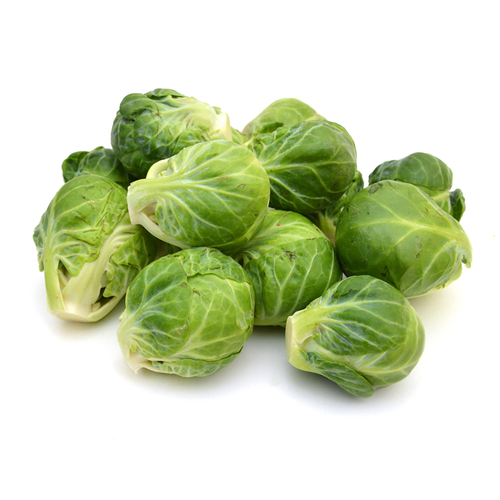Monographs licensed from Therapeutic Research Center, LLC
Scientific names: 1-isothiocyanate-4-methyl-sulfonyl butane
Alternative names: 1-isothiocyanato-4-methylsulfinylbutane, 4-methylsulfinylbutyl isothiocyanate, Broccoli Seed Extract, Broccoli Sprout Extract, Glucosinolate de Sulforaphane, SFN, Sulforaphane Glucosinolate, Sulforofano, Sulphoraphane
Scientific names: 1-isothiocyanate-4-methyl-sulfonyl butane
Alternative names: 1-isothiocyanato-4-methylsulfinylbutane, 4-methylsulfinylbutyl isothiocyanate, Broccoli Seed Extract, Broccoli Sprout Extract, Glucosinolate de Sulforaphane, SFN, Sulforaphane Glucosinolate, Sulforofano, Sulphoraphane
Sulforaphane is a chemical that is made when chewing cruciferous vegetables such as broccoli, cauliflower, and broccoli sprouts.
A chemical in these vegetables called glucoraphanin mixes with an enzyme in humans called myrosinase, which produces sulforaphane. Sulforaphane might increase the death of cancer cells and also reduce swelling.
People use sulforaphane for prostate cancer. It is also used for hay fever, autism, asthma, liver disease, sunburn, and many other conditions, but there is no good scientific evidence to support these other uses.
Don't confuse sulforaphane with broccoli or broccoli sprout. These are not the same.
When taken by mouth: Sulforaphane is commonly consumed in foods. It is possibly safe when used as medicine. Sulforaphane and sulforaphane-rich broccoli extract products have been used safely for up to 6 months. It's usually well-tolerated. Side effects might include heartburn and stomach upset.
Special Precautions & Warnings:
Pregnancy and breast-feeding: Sulforaphane is commonly consumed in foods. But there isn't enough reliable information to know if sulforaphane is safe to use in larger amounts as medicine when pregnant or breast-feeding. Stay on the safe side and stick to food amounts.
Children: Sulforaphane is commonly consumed in foods. But there isn't enough reliable information to know if it is safe to use in larger amounts as medicine.
Seizure Disorder: Seizure has been rarely reported in people with a history of seizures after taking sulforaphane. It is not clear if sulforaphane increases the risk for seizure. Use with caution.
NatMed Pro rates effectiveness based on scientific evidence according to the following scale: Effective, Likely Effective, Possibly Effective, Possibly Ineffective, Likely Ineffective, Ineffective, and Insufficient Evidence to Rate.
- Prostate cancer. Taking sulforaphane by mouth seems to delay increases in prostate specific antigen (PSA) levels in people who have had prostate cancer. Increased is a sign of prostate cancer returning.
- A digestive tract infection that can lead to ulcers (Helicobacter pylori or H. pylori). Taking sulforaphane by mouth doesn't seem to help clear H. pylori in people who are already taking standard H. pylori medication.
There is interest in using sulforaphane for a number of other purposes, but there isn't enough reliable information to say whether it might be helpful.
Sulforaphane is a chemical found in certain vegetables such as broccoli, broccoli sprout, and cauliflower.
As medicine, sulforaphane has most often been used by adults in broccoli sprout extract products and in broccoli compounds containing the chemical glucoraphanin. Speak with a healthcare provider to find out what type of product and dose might be best for a specific condition.
Interactions with pharmaceuticals
Medications changed by the liver (Cytochrome P450 1A2 (CYP1A2) substrates)
Interaction Rating=Moderate Be cautious with this combination.
Some medications are changed and broken down by the liver. Sulforaphane might change how quickly the liver breaks down these medications. This could change the effects and side effects of these medications.
Medications changed by the liver (Cytochrome P450 2E1 (CYP2E1) substrates)
Interaction Rating=Moderate Be cautious with this combination.
Some medications are changed and broken down by the liver. Sulforaphane might change how quickly the liver breaks down these medications. This could change the effects and side effects of these medications.
Medications changed by the liver (Cytochrome P450 3A4 (CYP3A4) substrates)
Interaction Rating=Moderate Be cautious with this combination.
Some medications are changed and broken down by the liver. Sulforaphane might change how quickly the liver breaks down these medications. This could change the effects and side effects of these medications.
Interactions with herbs & supplements
There are no known interactions with herbs and supplements.
There are no known interactions with foods.
vital.ly has licensed monographs from TRC Healthcare.
This monograph was last reviewed on 16/05/2025 10:00:00 and last updated on 26/12/2012 18:30:19. Monographs are reviewed and/or updated multiple times per month and at least once per year.
Natural Medicines disclaims any responsibility related to medical consequences of using any medical product. Effort is made to ensure that the information contained in this monograph is accurate at the time it was published. Consumers and medical professionals who consult this monograph are cautioned that any medical or product related decision is the sole responsibility of the consumer and/or the health care professional. A legal License Agreement sets limitations on downloading, storing, or printing content from this Database. No reproduction of this monograph or any content from this Database is permitted without written permission from the publisher. It is unlawful to download, store, or distribute content from this site.
Natural Medicines rates safety based on scientific evidence according to the following scale: Likely Safe, Possibly Safe, Possibly Unsafe, Likely Unsafe, Unsafe, and Insufficient Evidence to Rate. For more information about Natural Medicines’ Safety Rating System,
click here.
The Natural Medicines Effectiveness Ratings are assigned for specific indications. A product might be rated "Possibly Effective" for one condition, but be rated "Likely Ineffective" for another condition, depending on the evidence. For more info
click here.



